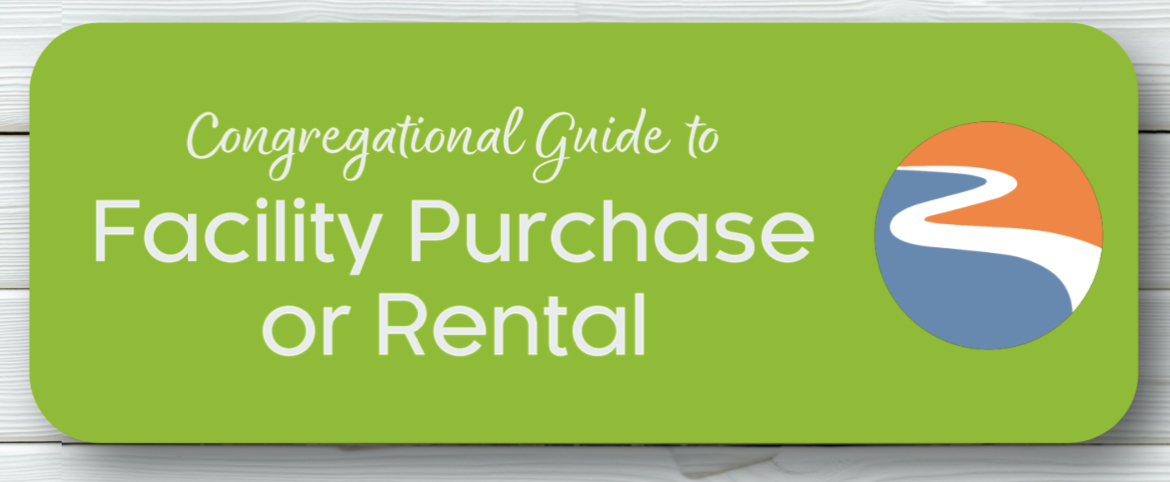
Facilities and its support can have an incredible impact upon ministry effectiveness. We pray that a congregation seeking a new or enhanced facility is doing so with a vision for kingdom expansion and ministry fruitfulness. While most congregations are excited about the possibility of new or expanded facilities, it is the responsibility of the leadership of the local church to approach the project prayerfully, with discernment and discipline. Far too many churches have been eager to have a building but refuse the wisdom of “counting the cost” prior to undergoing the project. (Lk 14:28). Decisions to purchase or rent a facility are difficult. The conference offers help to congregations by coaching them through an assessment of what is needed for a new facility. We provide expertise that can consult with your congregation for successful building project. It begins with three simple, but essential, steps.
HAS THE CONGREGATION COLLECTIVELY PARTICIPATED IN A TIME OF PRAYER AND FASTING regarding a new or expanded facility? If so, has the leadership team/local board determined that the Holy Spirit is directing them to new or expanded facilities? If not, will you endeavor to lead a congregation-wide time of consecration to seek a Word from the Lord? It is vital that the congregation as a whole be united in a building project, not simply the pastor or the board of administration. The reason for this is that the majority of the cost for building or expansion, will be born by the congregation and it will require significant sacrifices.
If the congregation and its leadership has discerned that they are being called to a building project, consider the following four questions that help you DECIDE THE “WHY” BEHIND THE “WHAT”.
- What ministry goals are we seeking to achieve in the building project?
- Can these ministry goals be achieved in our current situation?
- What is the vision of the church and how does the building project help in promoting that vision?
- Is the church currently supporting the lead pastor with benefits that cover the cost of living in your local community? Pastor support is compensation, housing allowance, retirement, medical insurance, continuing education in accordance to with Accounting and IRS standards.
If the congregation is called to a building project and has clarity regarding how the project is essential to promote the existing ministry fruitfulness and the vision for the church, then IT IS TIME TO “COUNT THE COSTS”. Please answer the following questions with your leadership team or local board of administration:
- What type of facility are you looking for? What are essential features of the facility to achieve your stated ministry goals?
- What is the cost of building or purchasing comparable facilities in your local area? Literally, speak with a local real estate professional and get actual costs of recently built or purchased facilities in your area that meet your needs.
- Once you have a targeted purchase or build price (based upon actual costs) then you need to develop a projected operating budget for the new facility.
- Down Payment: 20% of the targeted price in cash before the building or purchasing aspect of the project can begin.
- Utility Costs of comparable buildings in your local community. Utility Costs include: Electric, Gas, Water, Internet, and Trash.
- Upgrade costs: Many buildings are not church ready but were formerly used for other purposes. How much money will it take to upgrade the facility for ministry?
- Insurance costs: The cost to provide comprehensive protection for that facility. Varies according to size, location, and building usages. Brotherhood Mutual is the suggested insurer for a umbrella policy.
- Preventive maintenance: The cost to keep the facility operating including regular maintenance of important systems such as heating and cooling systems as well as property management like parking lot maintenance, grounds maintenance, signage, roofing, etc.
Once you have these costs, then:
- Identify your ministry expenses: Pastor’s support, staff support, cost of ministry equipment ,and materials.
- Identify what a typical mortgage on your property would be by taking the typical cost of the building, subtracting the down payment and developing an estimated payment over 20 years mortgagecalculator.org.
- For example, property that costs 1 million dollars. It would require $200,000 in cash/saving as a down payment and the monthly payment, just for the mortgage of the remaining $800,000 at 6.5% interest rate would be about $6200 per month or roughly $74,400 per year.
- Take the estimated mortgage cost, along with your monthly ministry costs, and combine with projected operating costs and you will have an idea of the monthly expenses.
Once you have done that, then look at your current budget and compare.
- Are you able to afford the building and continue to do ministry?
- How much do you need to raise for this project to be achievable?
The purpose of this was not to discourage you but to prepare you on the complexities of facility ownership. TRC is pleased to offer two resources to help you develop an achievable building project. Depending on where you are in this process will determine which team you are sent to first.
TRC’s PROPERTY TEAM brings a tremendous amount of experience with constructing, evaluating, and renovating buildings.
If your congregation can say, according to the parameters above, that they have the ability to afford a project, please contact Assistant Superintendent Heather Utley. She will evaluate your situation and direct you to the appropriate team.
Click the Link to download the 2-page PDF Buy or Rent
